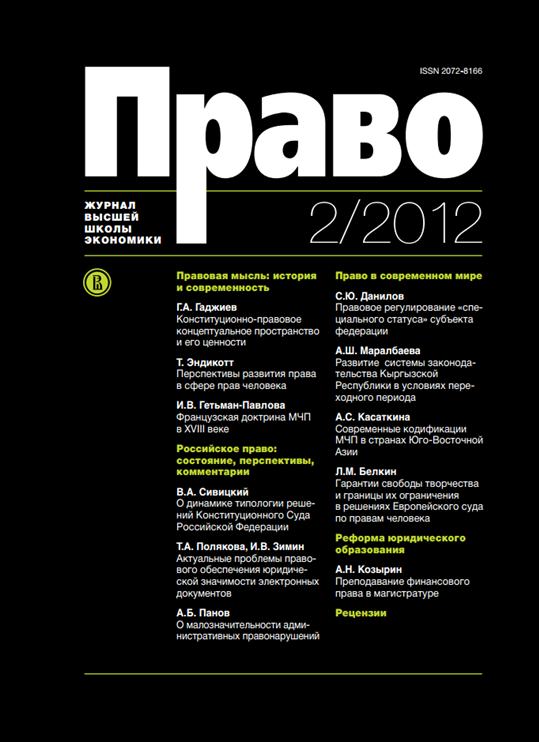Modern Codifications of Private International Law in the Countries of South East Asia (the People’s Republic of China and Japan)
Abstract
As of today, the international private law is experiencing recodification represemted in the substitution of codified autonomous acts with new laws. The recodification restores national international private law with a focus on the latest requirements of international civil norms. This is conditioned by the fact that the countries of South East Asia are shaping civil legislation including collision laws on the basis of foreign experience. The law drafting activity considers own and foreign experience, in particular of Germany, Switzerland and Italy. The main function of the codification is that it should overcome legal inflation, i.e. the legal crisis by adding legal aspects into the legal relations under development. A special of modern codifications of International private law in South East Asia is seen in a systematic more accurate way of formulating norms and institutions of the law. The current codifications of the international private law require new interpretations of such institutions as autonomy of the parties, principle of the closest connection, renvoi and circumvention of law etc. A Chinese law of 2010 shows that the Chinese pattern has taken partial codification: a legal norm contains provisions concerning civil law relations with a foreign component and points concerning family inheritance law and employment relations. An obvious advantage of the Chinese law of 2010 is the defence of a weaker party in legal relations, a more flexible approach as to the law on foreign organizations and making close link principle dominating for Chinese collision law. The 2006 law of Japan borrows much from the 1898 law but sets up a detailed and modern regulation. This legislative rule is detailed and concise. A special attention is paid to international family law and contractual and extra-contractual obligations in particular the regulation of consumer contracts. Hence, this article is devoted to the complex analysis of governing modern independent codifications of private international law in the countries of South East Asia. Within the framework of the article, the detailed analysis is implemented as to the national-legal regulation of laws in the field of private international law in China and Japan. The analysis has included the major institutes of private international law, and questions concerning hereditary, family, tort, property and liability law.
Copyright (c) 2012 Law Journal of the Higher School of Economics

This work is licensed under a Creative Commons Attribution-ShareAlike 4.0 International License.


















